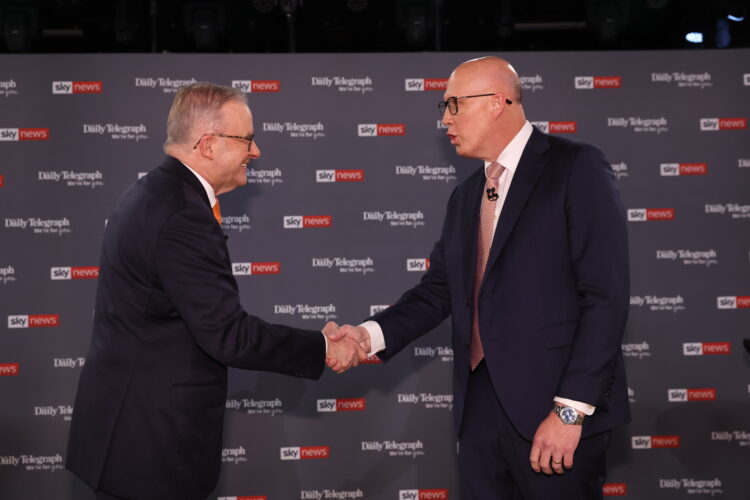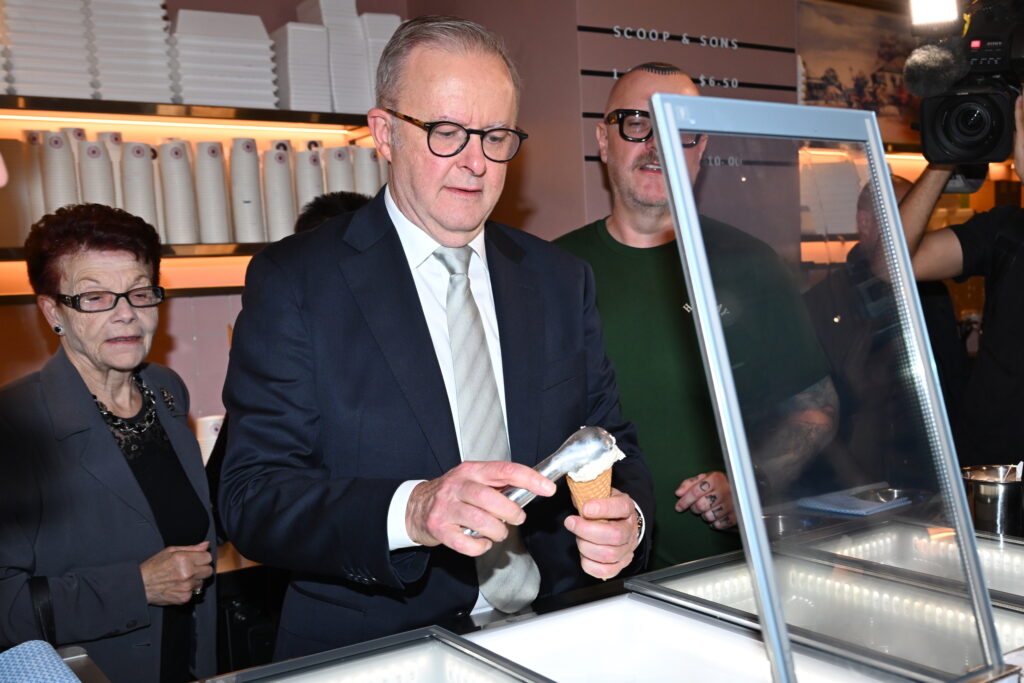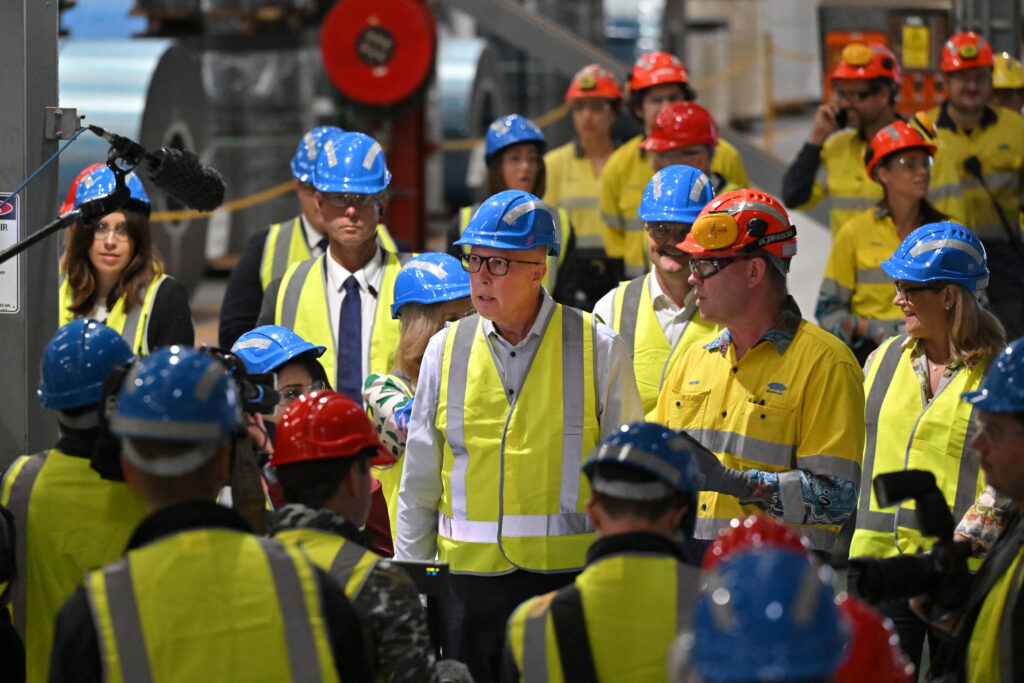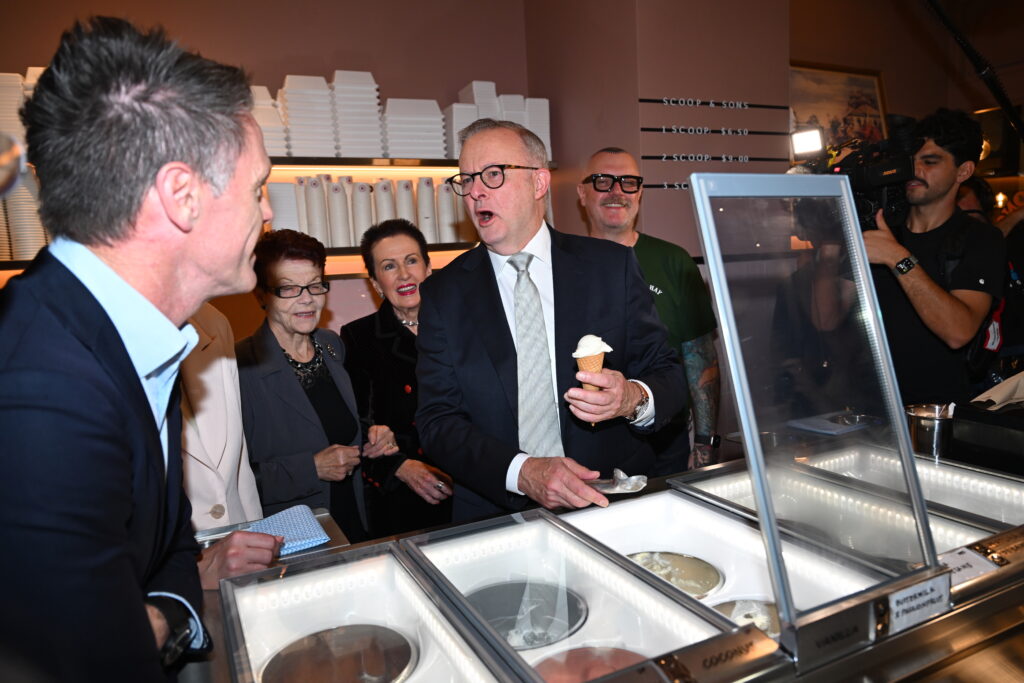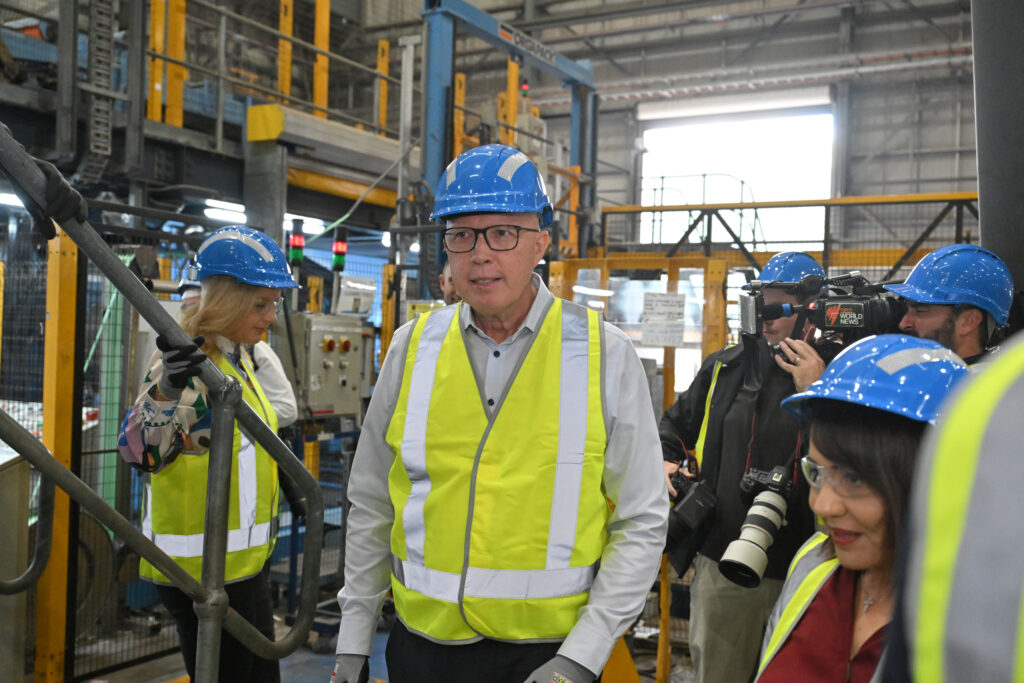Good night – see you tomorrow? (After we all scrub our eyes and ears of that debate)
I mean, if there is one positive to take from the Trump tariffs, it is that Gina Rinehart’s companies are suffering too.
AAP have done a markets wrap:
Nearly $50 billion has been erased from Australia’s top-500 public companies as US tariffs take effect and US-China trade war tensions escalate.
The S&P/ASX200 had fallen by 133.9 points, or 1.78 per cent, to 7,373.8 by 2:10pm AEST on Wednesday as the broader All Ordinaries lost 142.8 points, or 1.84 per cent, to 7,562.6.
The sell-off has erased almost three-quarters of Tuesday’s 2.3 per cent relief rally, leaving the key S&P/ASX200 down more than 14 per cent from mid-February’s 8,615 all-time high.
Roughly $49 billion had been wiped from the All Ordinaries’ 2.6 trillion market cap on Wednesday alone, as hopes of easing trade war tensions came to nothing, and ‘Liberation Day’ tariffs took effect at 2pm AEST, including a 104 per cent impost on Chinese exports to the US.
“We are on the verge of seeing the two largest economic and military superpowers collide at high speed, with Australia caught squarely in the middle,” IG Markets analyst Tony Sycamore said.
“If current lines hold, the fallout has the potential to dwarf the economic impact on the Australian economy felt during the GFC and COVID.”
The sell-off came after another volatile Wall Street session that finished in the red with the White House confirming the tariffs, and forging ahead with the counter-retaliatory measures against China.
China has vowed to “fight to the end” the US-led trade war.
The S&P500 benchmark index has lost $US5.8 trillion ($A9.8 trillion) from its combined market cap since the ‘Liberation Day’ tariffs were announced on April 2.
All 11 local sectors were in the red by the afternoon, with energy stocks, materials and health care stocks all shedding more than 3.4 per cent.
